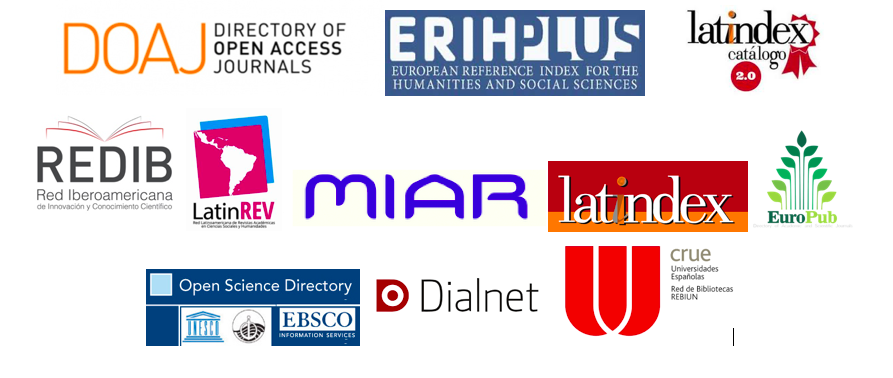

Anales de Historia Antigua, Medieval y Moderna is a scientific journal with external arbitration edited since 1998 by the Instituto de Historia Antigua y Medieval Facultad de Filosofía y Letras, Universidad de Buenos Aires). It is the continuation of Anales de Historia Antigua y Medieval, published between 1948 and 1997. The magazine is aimed at a specialized academic audience and aims to publish original and unpublished research works in the field of studies in Ancient History (Classical), Medieval and Modern. It is open to specialists and researchers both from the country and abroad, accepting contributions written preferably in Spanish, but also in English, French, Italian and Portuguese. The presented works are submitted to double-blind external arbitration carried out by expert peers. Its frequency is annual. Each volume covers the period January-December.
Peer review process
The Editorial Committee carries out a first review of the originals to ensure correct compliance with the journal's editing standards. After this stage, the works are evaluated by two external reviewers according to the Double- Blind Peer Review System , in order to guarantee the quality of the contents. Reviewers may not have the same institutional affiliation as the evaluated authors.
Following the guidelines proposed by the Committee of Publication Ethics (COPE), the evaluation of refereed manuscripts must consider criteria based exclusively on the scientific relevance, originality, clarity and relevance of the works presented.
The evaluators will be selected by the Editorial Committee based on their scientific level and thematic affinity with the work to be evaluated. The identity of the evaluators may not be revealed to the author, guaranteeing the most absolute anonymity of the evaluation reports and opinions.
Open access policy
Anales de Historia Antigua, Medieval y Moderna maintains its commitment to the policies of Open Access to scientific information, considering that both scientific publications and research financed with public funds must circulate on the Internet freely, free of charge and without restrictions, and that offering the public free access to research helps greater global exchange of knowledge. Thus, the magazine provides free, open and immediate access to its online content, without temporary embargoes of any kind. Readers and users therefore have immediate access to the materials published in the magazine, being able to read them, download them, copy them, distribute them, print them, add links to their full texts, track them for indexing, incorporate them as data in software, or use them. for any other purpose that is legal, without financial, legal or technical barriers, apart from those that are inseparable from access to the Internet itself, and with the sole requirement of recognizing the corresponding credits to the authors and Anales de Historia Antigua, Medieval y Moderna as first publication. As for the authors, Anales de Historia Antigua, Medieval y Moderna authorizes them to share their articles in pre-print version within institutional, thematic repositories or personal web pages from the moment in which they are notified of acceptance for publication. . Likewise, once the article has been published by the journal, authors are authorized to share the corrected post-print version of their article.
Copyright
The material published in the magazine is under a Creative Commons Attribution-ShareAlike 4.0 International License . That is, the copy, use, dissemination and transformation of the published content is authorized on the condition that 1) the authorship and the original source of its publication are cited (magazine, editorial and URL of the work) and 2) distribute your contribution under the same license as the original.
Ethical standards
The magazine Anales de Historia Antigua, Medieval y Moderna follows ethical principles that govern internationally throughout its editorial process. In this sense, it adheres to the principles established by the Committee on Publication Ethics (COPE). See more at: https://publicationethics.org/guidance/Guidelines
Anti-plagiarism policy
Anales de Historia Antigua, Medieval y Moderna seeks to guarantee that all published scientific works are original and unpublished and have not been previously published in another format, whether in whole or in part. Plagiarism control will be carried out by the editorial board before the peer review begins, through various plagiarism detection programs such as QueText, PlagScan or Plagiarism Checker by Grammarly.
Publication fees
Anales de Historia Antigua, Medieval y Moderna does not charge any type of charge to the authors either to process their collaborations ( no APCs ) or to be subjected to evaluation ( no submission charges ).
Digital preservation policy
This journal uses the LOCKSS system to create a distributed storage system among participating libraries and allows for the creation of permanent archives in the journal for preservation and restoration purposes.
Likewise, the contents of the journal are self-archived in PDF format in the institutional repository of the University of Buenos Aires, Argentina (Library and Information System of the University of Buenos Aires, SISBI ).
Self-Archiving Policy
This journal allows the deposit in repositories, institutional pages or others, of all versions of the article.
Indexing services, catalogs and directories


Anales de Historia Antigua, Medieval y Moderna | ISSN 1853-1555 (en línea) ISSN 1514-9927 (impreso)
Instituto de Historia Antigua y Medieval - Filo:UBA
revista.ahamm@filo.uba.ar | Sitio del Instituto